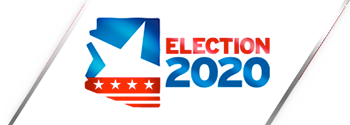With the election just days away, Cronkite News is taking a closer look at some of the measures on the Nov. 3 ballot.
As Arizona public schools face the challenge of COVID-19 and continued teacher shortages, Proposition 208 – which would increase funding for teachers, support staff and education programs through a surtax on high earners – is on the Nov. 3 ballot.
If the proposition passes, a 3.5% income surtax would be added to the current rate of 4.5% for income more than $250,000 for a single filing or $500,000 for a joint filing. The revenue would placed in the Student Support and Safety Fund and distributed to these areas:
- 50% to hire teachers and classroom support
- 25% to student support services
- 10% to mentoring and retention programs for new teachers
- 12% to the Career Training and Workforce Fund
- 3% to the Arizona Teachers Academy Fund
“208 is something that educators from across the country have been embracing for years,” said Marisol Garcia, vice president of the Arizona Education Association. “It’s not only important for new teachers and their ability to stay in their profession but also really critical if you want to deliver high quality instruction.”
Jaime Molera, Arizona superintendent of public instruction from 2001-03 and chairman of Arizonans for Great Schools and a Strong Economy, the main opposition to Proposition 208, said the initiative requires no return on investment in the education system and that school administrators could mishandle funds.
“This structure has absolutely zero reform, nor does it have any accountability,” he said. “If we’re going to invest significant dollars, I think there needs to be an understanding that the dollars are going to academic achievement and student growth.”
Invest in Education, leading the support for Proposition 208, has received $4.68 million through July 18. Arizonans for Great Schools and a Strong Economy has collected $595,817 as of the same date. The Arizona Chamber of Commerce also opposes 208.
Superintendent of Public Instruction Kathy Hoffman, who supports the initiative, said it comes at a crucial time when teacher and staff shortages are apparent in light of the COVID-19 pandemic.
According to a recent survey by the Arizona School Personnel Administrators Association, 28% of teacher vacancies from the 145 school districts and charter schools surveyed remained unfilled into the current school year. In addition, 50% of the vacancies now filled are teachers who do not meet Arizona’s standard certification requisites.
Hoffman also said Proposition 208 would help boost Arizona teacher salaries. The Arizona Auditor General’s most recent school district spending report states that by the end of 2019, the statewide average teacher salary increased to $52,441. Even so, according to a report released in March 2019 by the National Education Association, Arizona ranked 45 out of 50 for average teacher salary based on data from the 2017-18 school year.
“We need to continue to move the needle for teacher pay towards the national average, or at least be competitive with our neighboring states like Utah, California, Texas and Nevada,” Hoffman said.
A point of contention is whether Proposition 208 will benefit or harm small businesses. Molera said many small businesses owners would end up paying through this income surtax, which he said would be almost double what large businesses pay through the corporate income tax.
“You can’t take a hatchet on the tax policy. You have to use a scalpel,” he said. “I think right now (Proposition 208 is) going to cut one of the legs off of our economic growth engines.”
Supporters argue that only pass-through income – business revenue that owners take home as profit – is subject to the surtax, and only on income that exceeds the thresholds of $250,000 and $500,000. Mom-and-pop small businesses, they contend, will not pay more.
Garcia said she has spoken with many small business leaders and they believe stronger schools are necessary for a stronger economy. Hoffman said she, too, has heard concern from business leaders about ensuring the future workforce is highly educated and that Arizona has not properly invested in its public education system.
Despite the support for Proposition 208, both Garcia and Hoffman said the initiative does not address certain areas that desperately need funding, including special education and internet infrastructure.
There is also a problem with better performing schools receiving more funding. In 2016, 24% of children in Arizona lived in poverty according to a report by the Annie E. Casey Foundation. Despite this high number, Arizona does not give additional funding to districts with higher numbers of low-income students.
“We need to have the equity conversation,” Garcia said. “It’s kind of like somebody winning the race by letting them start faster before everyone else, so they can get farther along.”
Molera said the financial inequity among schools and school districts is a clear issue that needs to be addressed, but there is a better alternative to Proposition 208. As the architect for Proposition 301 in 2000, which slightly increased the state sales tax to fund public education programs, Molera said an analysis of school district property tax structures could be one way to move forward.
Whether Proposition 208 is the best way to fund Arizona’s public education, Garcia, Hoffman and Molera agreed that it’s clearly underfunded. Voters can read the initiative and decide on Election Day whether the surtax is the most effective solution.
 Want more on the 2020 elections? Cronkite News, Arizona PBS and Indian Country Today have teamed up to bring you comprehensive election coverage. Click here for more.
Want more on the 2020 elections? Cronkite News, Arizona PBS and Indian Country Today have teamed up to bring you comprehensive election coverage. Click here for more.
